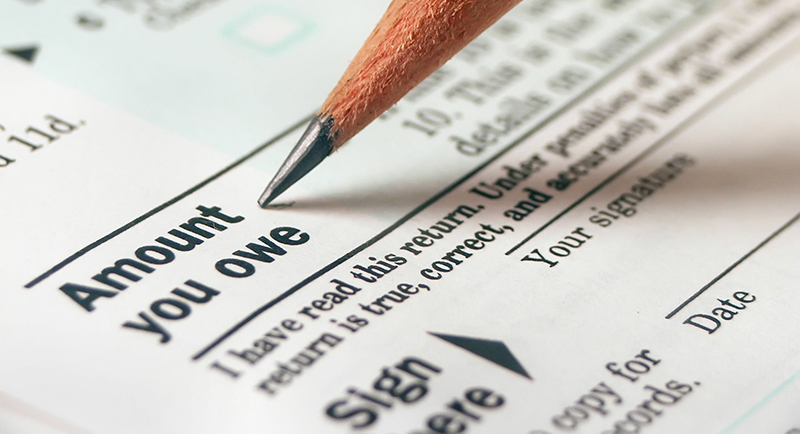How much do I owe the IRS? An Easy Way to Find Out
September 14, 2021 by Steve Banner, EA, MBA
Although we all hope for a healthy refund from the IRS every year after filing our taxes, for many unfortunate taxpayers the filing of their annual tax return results in a balance due to Uncle Sam. And if that balance is not paid promptly in full, the tax law allows for penalties and interest to be added to the amount owed. The matter can be further complicated if the prior year’s balance has not been paid, along with the accrued penalties and interest added to that amount. Situations like this can arise when an employer has not been withholding the correct amount from a taxpayer’s salary, or a self-employed person forgot to make estimated tax payments during the year. But no matter the cause, the first thing someone who finds themselves in this situation should do is find out exactly how much they owe.
One way for an individual to do this is to call the IRS helpline at 1-800-829-1040, but the wait times can often be long – especially during the second half of the year. Another alternative is to use the IRS Online Account tool, which allows you to view very helpful information such as:
- The total amount you owe, including balance details by year
- Your payment history and any scheduled or pending payments
- Key information from your most recent tax return
You can also use this tool to make payments online and look up the details of any Economic Impact Payments you may have received. But before you can use the Online Account tool, you’ll need to register with the IRS Secure Access system which helps to protect your identity and personal information.
If you do find that you owe money to the IRS, it’s best to face the situation head on and resist the temptation of thinking that the whole matter will resolve itself if you ignore it for long enough. The only thing that happens to your outstanding balance while you’re ignoring it is that the penalties and interest continue to accumulate and increase the amount you owe.
Although it can be very stressful to find yourself in a position such as this, you are far from alone and help is close at hand. TaxAudit offers its Tax Debt Relief service to taxpayers all over the country to help navigate Federal and local tax regulations and to find customized solutions to address each person’s particular situation. Both the IRS and states offer a range of debt relief programs such as Offers in Compromise, Penalty Abatements, and Installment Plans. Every case is different, and it costs you nothing to find out what options may be available to help you deal with your tax debt. We can’t promise miracles, but we can promise that we can make taking care of your tax debt as painless as possible.
Contact us today for a free consultation or check out our website for more information.





